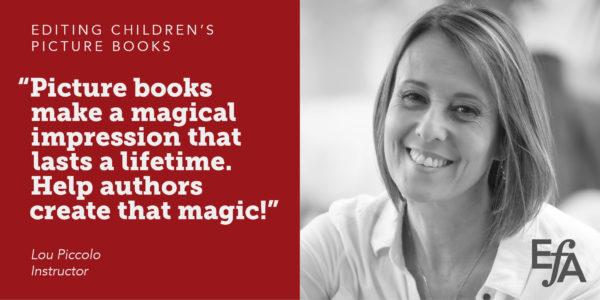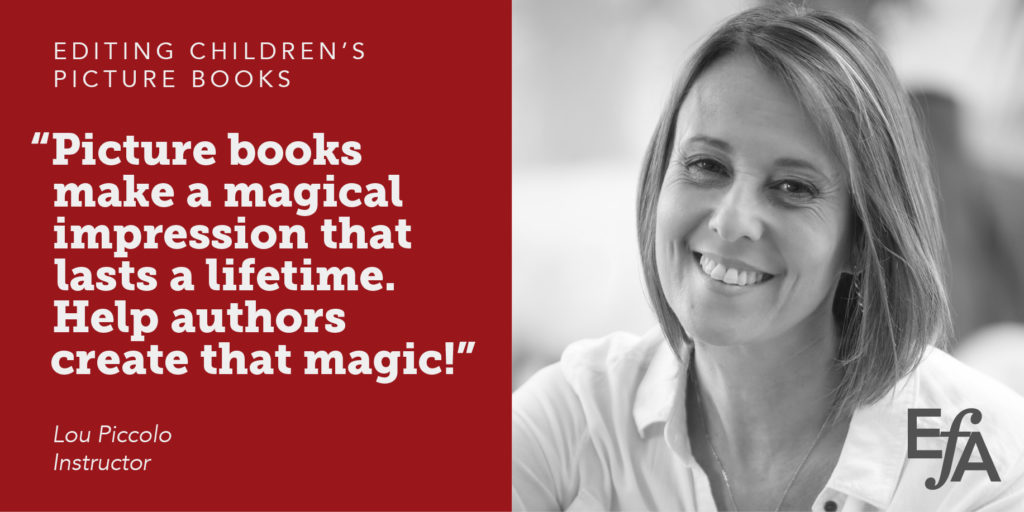Description
Our courses are asynchronous, meaning you never need to be at your computer at any specific hour. More information about how these classes are conducted is available here.
After placing your order, your course will be added to your personal course library on our education site. That site has different login information from the main EFA site. Please check your email for information on how to access the course.
If this session is full or the dates don’t work for you, join the waitlist to be informed of last-minute openings and future sessions.
If this course is full, join the waitlist.
Picture books are a child’s first impression of reading, but they are essentially books for an audience who cannot read. This is why picture book manuscripts have “rules” to follow for them to be engaging to both the children who listen to them and the adults who read them out loud. Editing picture books requires specialized knowledge and techniques specific to this type of fiction. If you’d like to begin editing children’s picture books, this course is a comprehensive guide ensuring you can help your client to produce a properly structured manuscript with a forward-moving plot, essential obstacles, and memorable characters.
At the end of this class, students will be able to identify the characteristics of a picture book, understand how these characteristics work together, and learn how to identify meter, rhyme scheme, and rhyme crimes in rhyming picture books. They will also be able to identify and analyze problems in a manuscript and do a developmental and line edit of a picture book manuscript with reference to the specific industry guidelines for picture books and poetry.
Week 1: What is a picture book? We’ll go over the format, how words and illustrations work together, and the words and rhythms of a picture book.
Week 2: We’ll cover developmental editing, including plot, motivation, conflict, characters, setting.
Week 3: We’ll look at picture book storytelling techniques and line editing, including vocabulary, point of view, dialogue, tone, and showing and telling.
Week 4: To rhyme or not to rhyme? We’ll discuss when a picture book can rhyme and when it shouldn’t, and the difference between rhyme and meter.
Week 5: We’ll go over how to scan a rhyming picture book manuscript, the art of scansion, and “rhyme crimes.”
Week 6: We’ll wrap up with troubleshooting and putting it all together: revising plot line, pace, and visual elements, as well as layout and page turns.
This course is open to students at all levels.
Lou Piccolo is a freelance developmental editor of fiction and creative non-fiction for children and young adults. She also writes graded readers for Burlington Books in Spain and is the editor and contributor for Go English Kids magazine in Lyon, France.




